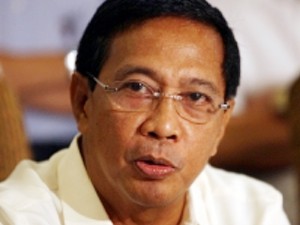Vice President Jejomar Binay on Friday highlighted the need to stop the worldwide trafficking in nuclear materials to prevent them from falling into the hands of terrorists.
Speaking at the Philippines-South Korea joint seminar on nuclear safety and security, Binay called for a “clear and universal response” and international cooperation against the illicit trade in nuclear materials.
“Cooperation between countries is still the most viable solution to addressing issues of nuclear safety, security and utilization,” said Binay, citing the events of September 11, 2001, (9/11) in the United States as a chilling reminder of the dangers that nations face.
Network of security
He said the growing number of states participating in the nuclear issue had resulted in a “wide mesh of security and intelligence services that can share relevant information to pursue criminal and terrorist elements.”
He stressed the need for a legal framework that would protect the confidentiality of each member state’s intelligence operations while allowing the efficient prosecution of nuclear materials traffickers.
He said countries should thoroughly examine the merits of making the trafficking in nuclear materials a crime against humanity, given the grave threat of the trafficked materials being used for terrorism.
“The materials being proffered can inflict the most cataclysmic ruin. In the wrong hands, they will bring certain death to entire peoples. The punishment must therefore suit the severity of the offense if we are to render true justice,” he said.
Need for evaluation
Likewise, the Vice President underscored the need to “evaluate” the use of nuclear power to produce electricity in the aftermath of the Japan earthquake of March 2011 that caused the Fukushima nuclear power plant north of Tokyo to rupture.
The joint seminar was organized by the Department of Foreign Affairs (DFA) and Department of Science and Technology (DOST) in cooperation with the South Korean Embassy, as part of the preparations for the Nuclear Security Summit to be held this month in Seoul.
The summit, which aims to advance commitments made during the First Nuclear Security Summit held in Washington, DC in 2010, will convene over 50 heads of state who will discuss measures to enhance nuclear security while fostering greater international confidence in the peaceful uses of nuclear energy.
Our own steps
During the seminar, the DFA and DOST, through the Philippine National Research Institute, will present the steps being taken by the government to address issues such as increased coordination with the International Atomic Energy Agency and law enforcement agencies as well as the proper inventory of nuclear materials.


